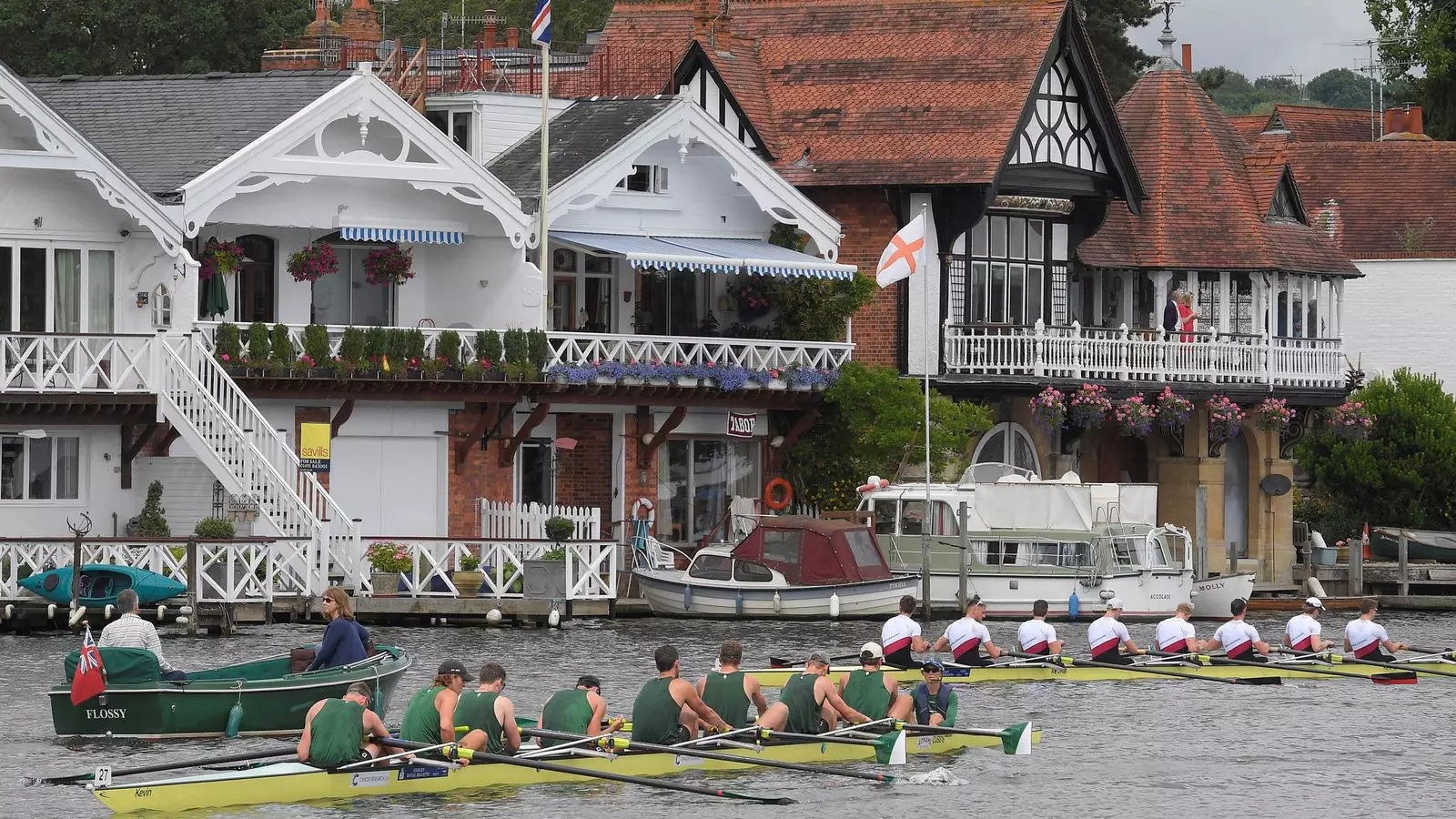The Henley Royal Regatta, an annual rowing event that dates back to 1839, is facing a major concern regarding the safety of its participants due to high levels of E.coli bacteria in the River Thames. The Henley and Marlow River Action Group conducted tests over a period of more than a month and found alarming results. The average E.coli level of 1,213 colony forming units (CFUs) per 100ml of water surpassed the safety standards set by the Environment Agency, making it unsafe for swimming. The highest recorded CFU reached an astonishing 25,000, which is more than 27 times the acceptable limit.
Thames Water, the company responsible for sewage along the Henley stretch of the Thames, defended its monitoring practices and claimed that the E.coli levels were within the acceptable range during dry conditions. However, the River Action Group accused Thames Water of downplaying the severity of the situation and trying to shift the blame to other sources such as farming, industry, road runoff, and wildlife. This back and forth between the two parties raises concerns about accountability and transparency in addressing water pollution issues.
The presence of E.coli bacteria in the water poses a significant risk to human health. It can cause a range of infections, including urinary tract infections, cystitis, intestinal infections, stomach cramps, bloody diarrhea, vomiting, and even life-threatening sepsis. The recent complaints from rowers about feeling sick and witnessing fecal matter in the water during the Boat Race highlights the urgency of addressing water pollution in the Thames. Regatta organisers have advised participants to take precautions such as covering cuts and grazes, avoiding swallowing river water, wearing appropriate footwear, and cleaning equipment thoroughly.
Water pollution has become a prominent issue in the political landscape, with promises from various parties to address the problem. The Liberal Democrats have pledged to protect chalk streams and bathing areas from sewage dumping, while Labour has vowed to hold water company bosses accountable for cleaning up their mess before receiving bonuses. The Conservatives have introduced legal requirements for water companies to reduce discharges and increase investment in water quality. However, the effectiveness of these promises in combating the alarming levels of E.coli in the River Thames remains to be seen.
The high levels of E.coli bacteria in the River Thames present a serious threat to public health and safety, especially during events like the Henley Royal Regatta. The conflicting accounts between the River Action Group and Thames Water, coupled with the potential health risks associated with E.coli contamination, highlight the need for urgent action to address water pollution in the Thames. As political parties make promises to tackle the issue, it is crucial that concrete measures are taken to ensure the protection of both the environment and the people who interact with it.


Leave a Reply